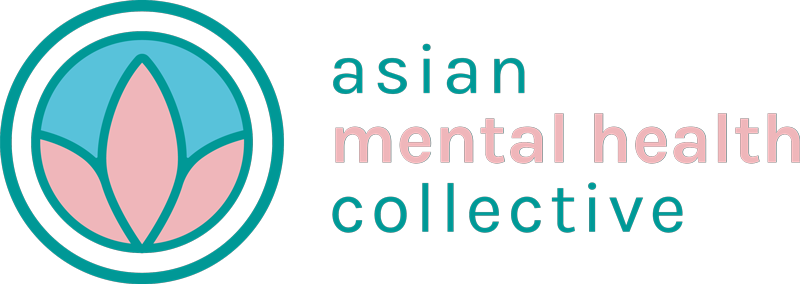In celebration of Pride Month and to celebrate our Asian queer, trans, non-binary and genderqueer friends and allies – we reached out to our Asian Mental Health Professionals community to give them a space to spread light on the important work they do.
Meet Christophe Ngo, M.A. LMFT.
Christophe was born in America. His parents came here during the Vietnam War and settled in Orange County and lived there most his life. The struggle with his identity in regard to culture, values, morals, spirituality, sexuality, and ethics seemed to always clash with one another.
Navigating through that was stressful and complicated, many times he was lost in the process or was tempted by the emotional and intellectual “comfort” of things. This lead me to become a therapist, as he had questions and inner conflicts that nobody seemed to understand.
Read more about Christophe’s experience as a South East Asian bisexual therapist and the expertise and experiences he brings to his work.

1. What inspired you to enter the field of mental health? Are there any experiences from your personal journey that help guide you in your professional work?
Interesting story actually! In community college, I fell asleep in one of my communication classes one day and after class I went up to apologize to her and said I was tired that’s why I fell asleep. She said “no you’re not, you’re depressed”. That was the first time I felt someone noticed me and validated my feelings without even realizing it, and to this day I still attribute her to saving my life. I have had many experiences growing up with immigrant parents and being the first generation born in America, and I fully understand the confusion of not feeling like I belong anywhere. It has helped me grow as an individual through my accomplishes and mistakes.
2. Do you work with LGBTQ+ Asian folks? Tell us about your practice.
LGTBQ+ Asian clients take up around half of my caseload, there are not many bisexual South Easts Asian male therapists surprisingly.
My practice specializes in trauma in which I use ART (Accelerated Resolution Therapy) as my main trauma modality and Identity in regard to personal, cultural, and sexual. I also work with Bipolar, neurodivergent, and ADHD. I try to be the therapist that I needed when I was going through tough times; the kind of therapist I would want to see. I understand the yearning to feel heard and more importantly to be seen as a person who is more than just their personal struggles. You can learn more about my practice, BeachCAT Counselling, on my website.
3. Do you have any tips for those who are unable to access identity-affirming therapy?
There are a lot of resources you can find through Facebook, Instagram, and Tiktok, but I must caution about who is giving out this information and where they are getting this information from, just because of someone’s personal experience or their interpretation does not mean it will resonate with you. It can be a great start in the right direction.
4. What’s something you want young queer, trans, NB/GNC Asian youth reading to know about queer relationships and queerness?
When you change others will change around you, whether their change is good or bad is not up to you. Understand, and take ownership of what are your expectations and the expectation of others, we easily get confused and believe we are at fault for not meeting up to people’s expectations, and we tend to internalize them as our own.
5. Are there any readings, resources, activists or organizations that you want to recommend?
“The Body Keeps Score” by Bessel Van Der Kolk, “The Courage to be Disliked” and “The Courage to be Happy” by Ichiro Kishimi, Fumitake Koga are 3 books I highly recommend in general and Openpathcollective.org is website that provides affordable therapy.
6. Would you like to share anything else that these questions may have missed?
Just like courage cannot exist without fear, growth cannot exist without discomfort. Therapy is like a road trip. Sometimes you go forward, backward, or sideways, but how fast you wanna go is up to you.

